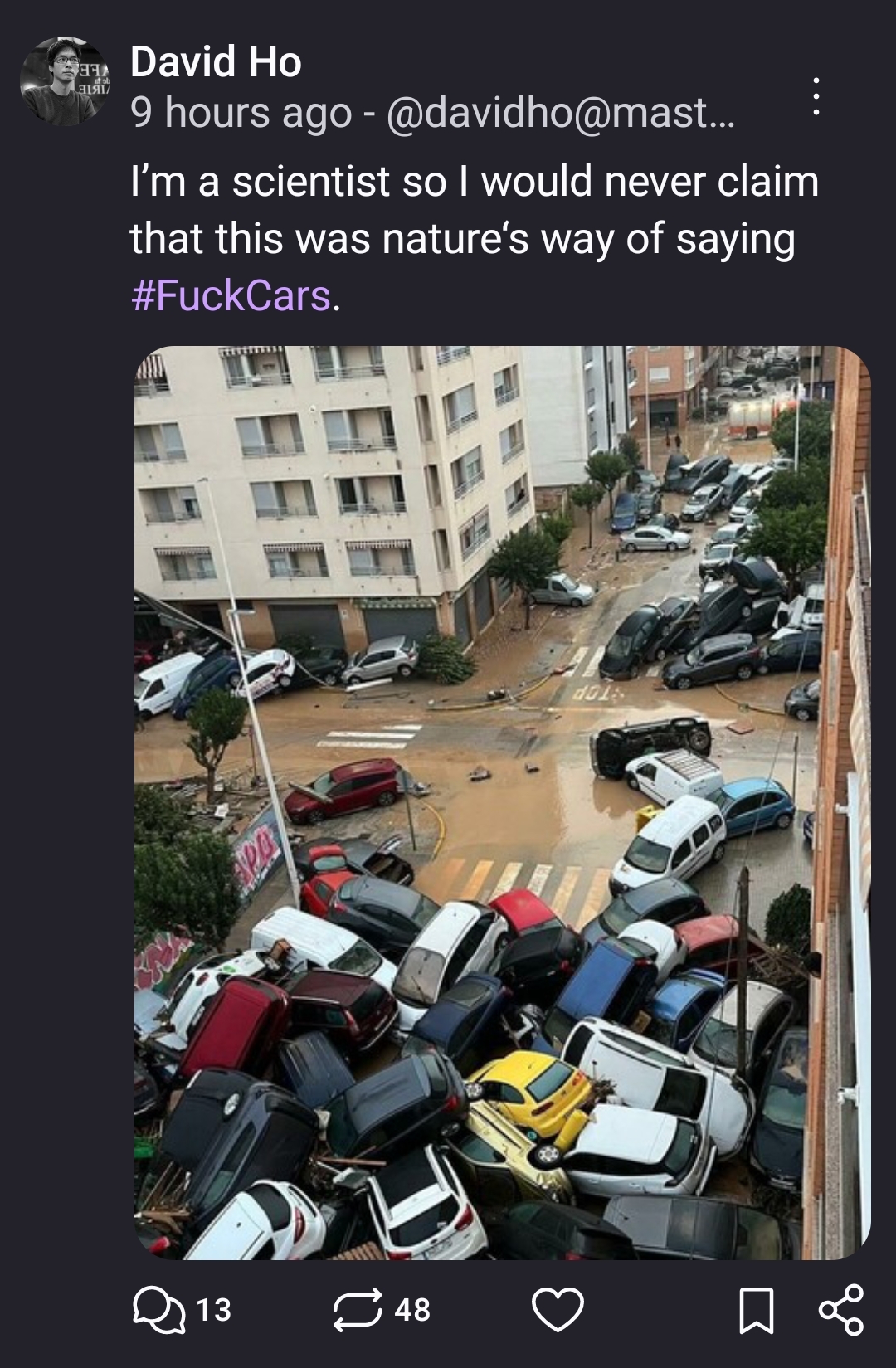Fuck Cars
A place to discuss problems of car centric infrastructure or how it hurts us all. Let's explore the bad world of Cars!
Rules
1. Be Civil
You may not agree on ideas, but please do not be needlessly rude or insulting to other people in this community.
2. No hate speech
Don't discriminate or disparage people on the basis of sex, gender, race, ethnicity, nationality, religion, or sexuality.
3. Don't harass people
Don't follow people you disagree with into multiple threads or into PMs to insult, disparage, or otherwise attack them. And certainly don't doxx any non-public figures.
4. Stay on topic
This community is about cars, their externalities in society, car-dependency, and solutions to these.
5. No reposts
Do not repost content that has already been posted in this community.
Moderator discretion will be used to judge reports with regard to the above rules.
Posting Guidelines
In the absence of a flair system on lemmy yet, let’s try to make it easier to scan through posts by type in here by using tags:
- [meta] for discussions/suggestions about this community itself
- [article] for news articles
- [blog] for any blog-style content
- [video] for video resources
- [academic] for academic studies and sources
- [discussion] for text post questions, rants, and/or discussions
- [meme] for memes
- [image] for any non-meme images
- [misc] for anything that doesn’t fall cleanly into any of the other categories
Recommended communities:
view the rest of the comments

because of climate change or...?
The financial, spatial and carbon economy of motorised private transport is inefficient, including its infrastructure. Opportunity costs of missing climate action due to economical reliance on private transport, spatial constraints of land use for traffic and inefficient housing (private transport induced sprawl) are just two examples for that.
Climate change fuels flooding frequency and severity, so fueling climate change with fossil fuelled private transport is irresponsible.
Reduced inpacts of climate change but more importantly better urban design. Long, straight, impermeable roads guide water wherever it wants to go with little resistance or slow downs. Cities can be built to be more permeable to handle water better, they can also implement stomwater retention and detention ponds.
Many cities currently waste lots of space on asphalt for cars. We could build transit with permeable surfaces (such as grassy tram lines or cycle lanes designed from permeable materials). We could build less parking lots and save that space for stormwater ponds.